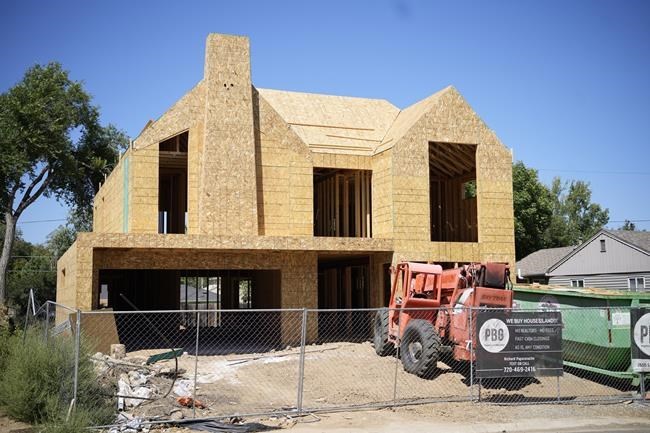DENVER (AP) — Despite seeing assessed home values soar by double digits, Colorado voters on Tuesday rejected a measure that would have lowered property tax bills for homeowners in return for decreasing a tax refund unique to the state that last year provided $750 to each taxpayer.
Under the measure the the owner of a $500,000 home would have paid anywhere from $186 to $276 less in property taxes this year than they normally would, depending on local tax rates, according to estimates by legislative analysts.
In exchange, after an initial increase in the taxpayer refund for everyone this year, the refund checks would have started to decrease and possibly disappear for people of all income levels over the next decade, depending on how much revenue the state takes in, according to legislative analysts.
And renters would have gotten smaller taxpayer refunds — known as the TABOR refund, a reference to Colorado’s Taxpayers Bill of Rights — without getting any of the direct relief that homeowners do.
Opponents of Proposition HH including Republican state lawmakers and conservative groups, argued the measure could ultimately cost taxpayers more than they save on property tax bills.
“Voters in Colorado weren’t fooled — they wanted simple property tax relief and instead the Legislature and governor gave them a 48 page confusing bill that went after TABOR refunds,” said Michael Fields, president of Advance Colorado, which led the charge against the measure.
Fields said property taxes must be cut and he hopes for a solution in a special legislative session, which would have to be instigated by Colorado Gov. Jared Polis.
Proponents of the measure had argued it was the best way to prevent devastating property tax bill increases, particularly for seniors and working families, without hurting the services those taxes funded.
State Senate President Steve Fenberg, who chaired the campaign for the measure, said in a statement Tuesday night that he thinks the measure fell prey to “to a misinformation slogan campaign by the far right, who would prefer to cut property taxes on the backs of our schools and fire districts.”
For property tax relief, said Fenberg, “it’s unclear tonight what the pathway forward is.”
Under the complicated measure, owners of primary residences would have seen greater reductions than the owners of second homes and rental properties. It also would have allowed senior citizens to take an existing property tax break for those 65 and older with them if they decided to downsize to another home. Currently, they only get that break if they have lived in a home for 10 years.
This year residents would have each gotten an estimated $148 more in a flat taxpayer refund, for a total of $898. But then starting in 2024 the refund would have reverted back to the traditional method of being determined by income and start to decline below even what the old rules would dictate.
People with an adjusted gross income of $52,000 or less were expected to get a $326 refund next year, $31 less than under current law under the measure. Those with an income of $289,001 were set to get checks for $1,028, $100 less.
Put on the ballot by the Democratic-led Legislature, the property tax measure would have slowed the increase of property tax bills over the next decade in two ways. Proposition HH would have lowered the statewide assessment rate that is used to calculate how much people have to pay to their local governments based on the value of their homes. It also would have exempted a portion of a home’s value from being taxed.
In the latest tax assessments this year, residential property values increased by between 35% and 45% in the Denver area and up to 60% in parts of the mountains. So homeowners were still set to get bigger property tax bills for this year compared to last year. The ballot measure would have just eased the increase.
Voters approved a second tax measure that will permit millions more dollars from a tobacco tax to go toward the state’s new universal preschool program.
That measure deals with taxes on cigarettes and tobacco products approved by voters in 2020. Analysts underestimated how much it would take in so, under the Taxpayer’s Bill of Rights, voters needed to be asked if the state can keep the extra $23.65 million the taxes brought in in the first year, including interest, or if it should be refunded.
___
Bedayn is a corps member for the Associated Press/Report for America Statehouse News Initiative. Report for America is a nonprofit national service program that places journalists in local newsrooms to report on undercovered issues.
Colleen Slevin And Jesse Bedayn, The Associated Press



